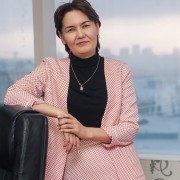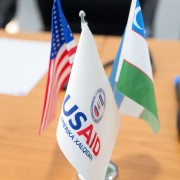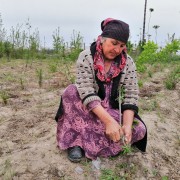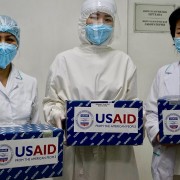Speeches Shim

USAID is working with the five countries of Central Asia to accelerate a regional transition to cost effective, low emission, and climate-resilient economies. Providing clean, renewable energy and improving energy efficiency can solve issues of national and regional energy security, stability, and growing emissions. These efforts lead to a future of self-sufficiency by leveraging domestic resources and improving opportunities for cross-border trade.

The COVID-19 pandemic has only exacerbated the dangers to at-risk groups as migrants have become stranded along borders or in foreign countries without work and resources. Many people have not been able to travel for seasonal work or to travel to locations with more opportunities. This puts people, like Razia, at high risk for exploitation. Traffickers take advantage of the lack of knowledge and desperate situation many have found themselves in due to the pandemic. Responding to the COVID-19 pandemic and related travel restrictions, the USAID-funded Safe Migration in Central Asia project is working to provide migrants with information to protect themselves and avoid potential exploitation.

The USAID Legal Reform Program has assisted the Ministry of Justice in preparing successful models of an investment agreement and bilateral investment treaties. The new investment agreement has made Uzbekistan more attractive to foreign businesses, while also improving protections for Uzbekistan’s interests in the event of a dispute. The new bilateral investment treaties equally contribute to creating a positive investment climate for foreign businesses, as it incorporates international experience and best practices and protects the interests of both parties.

In June 2019, the USAID Agribusiness Competitiveness activity conducted a training on fruit tree grafting for 38 orchard farmers, managers of nurseries, including women and young grafters. Participants learned how to graft peach, persimmon and pistachio trees. Mavjigul was one of the most active participants. She was thrilled to improve her sapling growing skills. “We used to only graft lemons and local fruit trees. Thanks to USAID, I have learned how to graft pistachios and persimmons trees too. I learned cleavage grafting which is very different and more effective than our old methods,” says Mavjigul.

The United States through its Agency for International Development (USAID) in Kazakhstan, announced the procurement of essential laboratory equipment and supplies to support the Government of Kazakhstan’s response to the COVID-19 pandemic. The U.S. Government delivered supplies valued at $300,000 to support the COVID-19 emergency response in Kazakhstan through USAID’s Local Health System Sustainability Project.

Comment
Make a general inquiry or suggest an improvement.